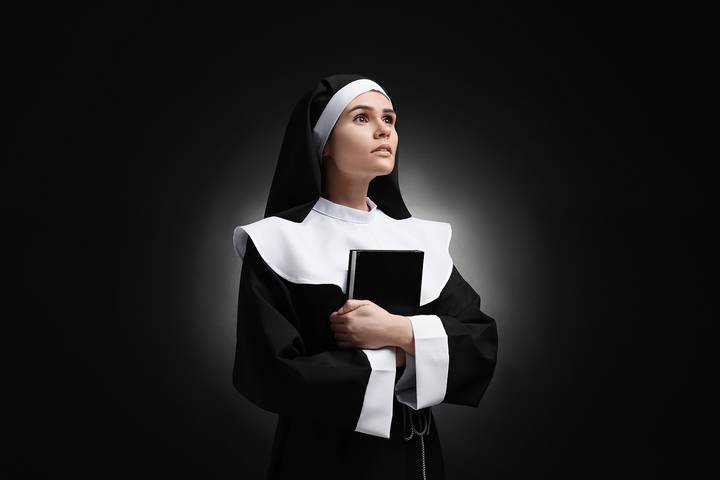A woman’s role in a church covers various responsibilities and contributions. Women actively engage in numerous aspects of church life, such as ministers, educators, counsellors, administrators, and more. They hold crucial positions in leading worship services, teaching Sunday school, and offering pastoral care to members. Their participation also extends to community outreach initiatives.
Besides these roles, women contribute to the church’s viability by volunteering their time and talents in different capacities. Women’s presence and involvement in the church today are not just helpful, but necessary. Their distinct perspectives, empathy, and leadership abilities bring depth and variety to the church’s mission. Women possess many valuable skills, such as effective communication, nurturing care, and organizational proficiency. These skills are crucial to cultivating a supportive and inclusive church community.
The ideal role for a woman in today’s church should embrace equality, inclusivity, and acknowledgment of their spiritual gifts. The church should encourage women to take on leadership, ministerial, and pastoral responsibilities equal to men.
Let’s learn more about a woman’s role in the church today.
Church role #1: Ministers and pastors
Female ministers and pastors hold a significant position in the religious community. They extend pastoral care to church members through counselling, guidance, and prayer. This role’s distinction lies in its deep connection to people’s spiritual needs. Key characteristics include profound theological understanding, inspiration, and fostering unity and personal development within the church.
Ministers and pastors are recognized as suitable for this role due to their exclusive traits that enable effective leadership within the church. Their deep knowledge of religious texts and doctrines allows them to offer meaningful sermons and advice. Possessing articulation talent, they can convey intricate spiritual concepts in a relatable way.
Furthermore, female ministers and pastors are often admired for their compassion, empathy, and expertise. Their role is essential for maintaining the congregation’s spiritual well-being and encouraging a sense of community and shared beliefs, rendering them vital to the church’s existence.
Church role #2: Sunday school teachers
Female Sunday school teachers are responsible for children’s religious education and moral development. Their duties involve planning and leading Sunday school classes, where they teach biblical stories, values, and principles.
Sunday school teachers are crucial in shaping the church’s future by providing fundamental faith lessons and values for the upcoming generation. The uniqueness of this role lies in its emphasis on age-appropriate teaching techniques and the capacity to connect with children and adolescents, assisting them in forming a solid foundation of faith in an understandable and significant manner.
Esteemed for their roles, Sunday school teachers instill vital values and beliefs in younger church members. Their distinctive qualities include:
- Patience.
- The ability to convey intricate spiritual ideas to children.
- A profound passion for cultivating young people’s faith.
These educators offer a secure space for young congregation members to raise questions, delve into their spirituality, and forge a strong bond with their faith.
Church role #3: Pastoral care providers
Female pastoral care providers support congregants during emotionally and spiritually challenging times. They provide counselling, comfort, and prayer for those dealing with various difficulties like grief, sickness, family problems, or personal crises. Pastoral care providers are crucial in the church community, delivering a caring and empathetic presence when required.
Their unique characteristics encompass a profound sense of empathy, practical listening abilities, and the capacity to offer spiritual and emotional guidance. They become trusted confidants and pillars of strength for those struggling with challenging situations.
Pastoral care providers are deemed an invaluable resource to the church due to their ability to offer solace and direction during personal crises and emotional turmoil. Their distinct traits allow them to establish deep and meaningful connections with individuals, addressing both spiritual and emotional requirements.
These providers extend a sympathetic ear, a supportive shoulder, and the restorative power of prayer, substantially contributing to the congregation’s well-being and spiritual resilience. They embody the church’s dedication to compassion, attentiveness, and the application of fundamental teachings surrounding love and assistance.
Church role #4: Worship leaders
Worship leaders, who are often female, guide and improve the spiritual experience of churchgoers during worship services. They lead the congregation in prayer, hymns, and other parts of the worship service, establishing an environment filled with respect and dedication.
Respected for their role in assisting the congregation to connect with their faith through music and spiritual expression, worship leaders have distinct qualities that enable them to create a harmonious and spiritually uplifting atmosphere during worship services. They are often equipped with outstanding vocal or instrumental talents and guide the congregation in singing worship songs.
Additionally, they possess a deep knowledge of the church’s principles and doctrines, letting them choose music and spiritual aspects that correspond to the church’s message. Worship leaders facilitate a transformative worship experience, allowing churchgoers to become vital to the church’s spiritual path.
Church role #5: Event coordinators
Female event coordinators organize and manage diverse church events and gatherings. They collaborate with church personnel, volunteers, and clergy to ensure that occasions such as worship services, fundraisers, community outreach initiatives, and social get-togethers proceed seamlessly. These coordinators handle logistical aspects, collaborate with suppliers and vendors, and handle schedules.
They possess exceptional organizational abilities, a keen eye for detail, and the capability to craft enjoyable and memorable moments for congregants and participants. They play a crucial role in strengthening unity and connection within the church community by facilitating well-executed events that align with the church’s objectives and values.
Event coordinators are a significant asset to the church due to their expertise in ensuring the success of numerous church events and gatherings. Their distinct features encompass the capacity to manage several tasks and responsibilities. They work relentlessly to establish an environment that mirrors the church’s principles and offers a feeling of belonging and shared experiences.
By efficiently coordinating events professionally, event coordinators contribute to the overall health and energy of the church. Their commitment to ensuring all church activities run smoothly while nurturing a flourishing and interconnected church community.
Church role #6: Youth leaders
Female youth leaders guide and foster young church members’ spiritual and personal growth. They develop and lead youth programs, activities, and events that engage and educate young congregants. Youth leaders offer mentorship advice in matters of faith and facilitate conversations that promote exploration.
Their distinct characteristics include:
- Being relatable to youth.
- Having a passion for nurturing spiritual growth.
- Creating an environment where young members feel understood and supported.
They are essential to shaping the church’s future by assisting the next generation in establishing a solid foundation of faith and values.
Youth leaders are a crucial resource for the church because of their ability to connect with and motivate the younger generation. Their distinctive qualities allow them to create a cozy and engaging atmosphere for young congregants to delve into their faith.
Church role #7: Choir directors
Choir directors are vital in leading and directing the church choir during worship services. They collaborate closely with choir members to practice and perform hymns and other musical aspects of the service. Vhoir directors establish a harmonious and spiritually elevating atmosphere by selecting suitable music that aligns with the service message.
Key characteristics include:
- A solid musical background.
- Comprehension of the church’s spiritual goals.
- An ability to combine voices and instruments to create lovely music that heightens the worship experience.
Choir directors significantly impact the spiritual atmosphere of the church and play an essential part in promoting unity and dedication among congregants.
Choir directors are essential in churches to improve worship experiences using music. Fundamental traits include a deep understanding of music’s role in spirituality. They are often skilled musicians with an aptitude for choosing and organizing music supporting the church’s message.
Leading the choir enables them to produce a spiritually inspiring and uplifting environment, encouraging a sense of community and respect. Choir directors use their musical knowledge to embed meaning and emotion into worship services, letting congregants connect deeply with their faith.










